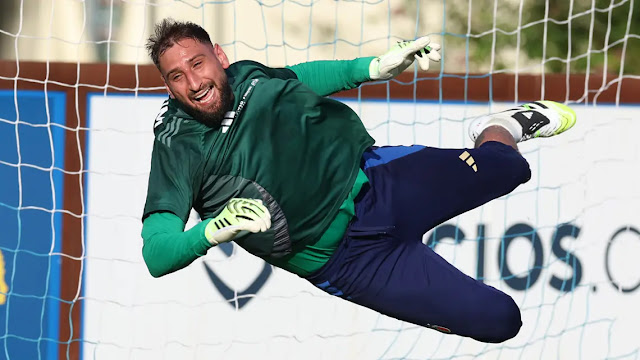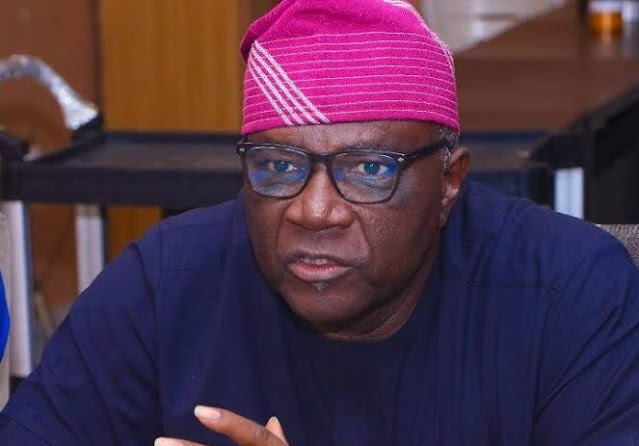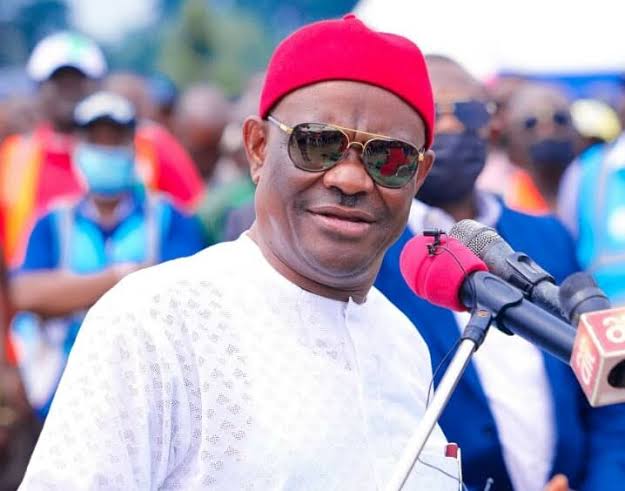In a significant development in European football, Sevilla FC, a prominent LaLiga club, has officially terminated the contract of Nigerian striker Kelechi Iheanacho, effective September 1, 2025. The mutual agreement to end his tenure with the Andalusian outfit marks the end of a brief and challenging spell for the 28-year-old forward, who joined the club as a free agent in the summer of 2024 after a seven-year stint with Leicester City. The decision, driven by Sevilla’s need to free up squad space and Iheanacho’s limited impact, has sparked widespread discussion, particularly with reports of interest from Scottish champions Celtic FC. This article delves into the details of the contract termination, explores its implications for Iheanacho’s career, analyzes Sevilla’s strategic motivations, and situates the event within the broader context of Nigerian footballers in European leagues, offering insights into the challenges and opportunities ahead.
Details of the Contract Termination
The termination of Kelechi Iheanacho’s contract was announced by Sevilla FC on September 1, 2025, via an official statement on their website and social media platforms. The club confirmed that a mutual agreement had been reached with the Nigerian forward, whose contract was originally set to run until June 2026. “Sevilla FC and Kelechi Iheanacho have reached an agreement for his contract termination,” the statement read. “We want to thank Kelechi for his professionalism and wish him the best of luck in his future.”
Iheanacho’s departure was necessitated by Sevilla’s need to comply with LaLiga’s squad limit regulations and free up space for new signings, particularly after exceeding the permitted number of players. The club’s sporting director, Víctor Orta, acknowledged the decision as part of a broader strategy to streamline the squad and align with new coach Matías Almeyda’s tactical vision. The termination also facilitated the registration of Alexis Sánchez, a high-profile signing, highlighting the competitive pressures within Sevilla’s roster.
During his time at Sevilla, Iheanacho struggled to secure a starting role, appearing in only 11 matches and scoring three goals, primarily in the Copa del Rey against lower-tier opposition. His lack of consistent playing time in LaLiga, where he failed to score in nine appearances, underscored his challenges in adapting to the Spanish top flight. A mid-season loan to Middlesbrough FC in the English Championship, where he scored one goal and provided two assists in 15 matches, further highlighted his struggles.
The termination has positioned Iheanacho as a free agent, opening the door for potential moves to other clubs. Notably, Celtic FC has emerged as a frontrunner, with reports from Sky Sports indicating that the Scottish club is in talks with the striker to replace Adam Idah, who was sold to Swansea City for £7 million. The move could reunite Iheanacho with his former Leicester City manager, Brendan Rodgers, offering a chance to revive his career in a familiar system.
Background: Iheanacho’s Journey to Sevilla
Kelechi Iheanacho’s career trajectory provides critical context for understanding the significance of his contract termination. Born on October 3, 1996, in Owerri, Nigeria, Iheanacho rose to prominence as a youth international, starring in the 2013 FIFA U-17 World Cup, where he won the Golden Ball award. His performances caught the attention of Manchester City, where he debuted in 2015, scoring 21 goals in 64 appearances and contributing to the 2016 League Cup triumph.
In 2017, Iheanacho joined Leicester City for £25 million, embarking on a seven-year stint that saw him score 61 goals and provide 34 assists in 232 appearances across all competitions. His standout moments included the winning goal in the 2021 FA Community Shield against Manchester City. However, his final season at Leicester in 2023-24 was marred by limited playing time, as Jamie Vardy remained the first-choice striker, prompting Iheanacho to seek a new challenge as a free agent.
Sevilla’s signing of Iheanacho in July 2024 was seen as a strategic move to replace Youssef En-Nesyri, who joined Fenerbahçe. The club, known for its success in the UEFA Europa League, hoped Iheanacho’s Premier League experience and international pedigree would bolster their attack. However, his inability to adapt to LaLiga’s tactical demands, coupled with competition from Isaac Romero and other forwards, limited his opportunities. The loan to Middlesbrough, intended to provide playing time, yielded modest results, and his return to Sevilla in 2025 did not change his fortunes.
Strategic Motivations for Sevilla
Sevilla’s decision to terminate Iheanacho’s contract reflects a combination of tactical, financial, and regulatory considerations:
Squad Management: LaLiga’s strict squad limits forced Sevilla to make tough decisions to accommodate new signings like Alexis Sánchez. Iheanacho’s limited contributions made him a candidate for release, as the club prioritized players aligned with Almeyda’s vision.
Tactical Shift: Under Matías Almeyda, Sevilla has adopted a high-pressing, possession-based style that demands versatility and physicality from forwards. Iheanacho’s playing style, characterized by intelligent movement and finishing, did not fully align with these demands, as evidenced by his lack of starts.
Financial Prudence: Terminating Iheanacho’s contract, originally set to run until 2026, allowed Sevilla to reduce wage costs and avoid financial penalties for exceeding squad limits. The club’s mid-table position in LaLiga (13th with 15 points in November 2024) necessitated cost-effective roster management.
Market Flexibility: The termination provides Sevilla with flexibility to pursue new attacking options in the January 2025 transfer window, as reported by Football Espana. The club’s offensive struggles, with only 18 goals in the 2024-25 season, underscored the need for a more effective forward line.
Implications for Iheanacho’s Career
The contract termination marks a critical juncture for Iheanacho, whose career has oscillated between promise and inconsistency. At 28, he remains a talented striker with significant experience in competitive leagues, but his recent struggles raise questions about his next steps:
Potential Move to Celtic: Interest from Celtic offers a lifeline, particularly given Brendan Rodgers’ familiarity with Iheanacho’s abilities. A move to the Scottish Premiership, while a step down from LaLiga, could provide a platform to regain form and confidence. Celtic’s need for a replacement for Adam Idah, coupled with their participation in European competitions, makes the move appealing.
Return to England: Reports from Football Espana and Leicester City News indicate interest from Championship clubs like West Bromwich Albion and Watford, suggesting a potential return to England. A move to the Championship could offer regular playing time, essential for rebuilding his reputation, though it may not align with his ambitions for top-tier football.
International Career: Iheanacho’s struggles at Sevilla have raised concerns about his place in Nigeria’s Super Eagles squad. Despite scoring 19 goals in 55 appearances for Nigeria, his lack of club form led to his initial exclusion from the 2025 AFCON qualifiers, only to be recalled after Victor Osimhen’s injury. Continued inconsistency could jeopardize his international prospects.
Career Reinvention: At 28, Iheanacho is at a crossroads. A successful move to a club offering regular playing time could revive his career, but failure to adapt risks relegating him to a journeyman status. His technical skills, vision, and goal-scoring ability remain assets, but he must address criticisms of inconsistency and physicality.
Broader Context: Nigerian Footballers in European Leagues
Iheanacho’s experience reflects broader challenges faced by Nigerian footballers in European leagues, where talent often meets the pressures of adaptation, competition, and systemic barriers:
Adaptation to Tactical Systems: Nigerian players, known for their athleticism and flair, often struggle with the tactical discipline required in leagues like LaLiga. Iheanacho’s difficulties in Sevilla’s high-pressing system mirror those of other Nigerians, such as Victor Osimhen’s initial challenges at Napoli.
Competition and Squad Dynamics: The influx of Nigerian talent into Europe—players like Ademola Lookman, Taiwo Awoniyi, and Chidera Ejuke—has heightened competition. Iheanacho’s limited minutes at Sevilla, where he was overshadowed by Isaac Romero, highlight the challenges of securing a starting role.
Economic and Contractual Pressures: European clubs’ financial constraints, as seen in Sevilla’s squad management, often lead to short-term contracts or loans for African players, limiting their stability. Iheanacho’s free-agent status and subsequent termination underscore these pressures.
Cultural and Social Barriers: Nigerian players face cultural adaptation challenges, including language barriers and integration into team dynamics. Iheanacho’s lack of pre-season preparation, as noted by coach Francisco Javier Garcia Pimienta, hindered his integration at Sevilla.
Impact on Super Eagles: The performance of Nigerian players abroad directly affects the national team’s competitiveness. Iheanacho’s struggles, alongside injuries to key players like Osimhen, pose challenges for Nigeria’s 2025 AFCON and 2026 World Cup campaigns.
Socio-Economic Context: Nigeria’s Football Ecosystem
The termination of Iheanacho’s contract also reflects broader socio-economic dynamics in Nigeria’s football ecosystem:
Youth Development and Talent Export: Nigeria’s success in producing football talent, as seen in Iheanacho’s U-17 World Cup triumph, is a source of national pride. However, the lack of robust domestic leagues forces players to seek opportunities abroad, often at a young age, exposing them to intense competition and pressure.
Economic Impact: Successful Nigerian players abroad contribute to Nigeria’s economy through remittances and sponsorships. Iheanacho’s earnings during his Leicester tenure, estimated at £80,000 per week, highlight the financial potential of football exports. However, his recent struggles underscore the precariousness of such careers.
Fan Expectations and Media Scrutiny: Nigerian fans, active on platforms like X, have expressed mixed sentiments about Iheanacho’s termination. Some praise his professionalism, while others criticize his lack of impact, reflecting the high expectations placed on Super Eagles stars.
Football as Social Mobility: For many Nigerian youths, football represents a pathway out of poverty. Iheanacho’s journey from Owerri to Manchester City inspired countless aspiring players, but his setbacks highlight the challenges of sustaining success in Europe.
Challenges for Iheanacho and Sevilla
Both Iheanacho and Sevilla face significant challenges moving forward:
For Iheanacho:
Finding the Right Fit: Securing a club that aligns with his playing style and offers regular minutes is critical. Celtic’s interest is promising, but Iheanacho must adapt to a new league and system.
Regaining Confidence: His lack of goals in LaLiga and modest output at Middlesbrough may have dented his confidence. A supportive coaching environment, like Rodgers’ at Celtic, could be key.
International Relevance: Maintaining his place in the Super Eagles requires consistent club performances, especially with emerging talents like Josh Maja competing for spots.
For Sevilla:
Squad Rebuilding: The club’s mid-table position and offensive struggles necessitate further signings. The January transfer window will be critical for reinforcing the attack.
Financial Stability: Balancing wage costs and squad limits remains a challenge, particularly as Sevilla aims to compete in LaLiga and European competitions.
Fan Expectations: Sevilla’s fans, accustomed to Europa League success, demand improvement. The termination of Iheanacho’s contract, while necessary, may fuel criticism if results do not improve.
Opportunities for Renewal
The termination presents opportunities for both parties:
For Iheanacho:
Fresh Start: As a free agent, Iheanacho can negotiate with clubs across Europe, including potential moves to Turkey, Greece, or back to England.
Reunion with Rodgers: A move to Celtic could revive his career, leveraging Rodgers’ familiarity with his strengths, as seen during their successful Leicester tenure.
Leadership Role: At 28, Iheanacho can take on a leadership role in a new club, mentoring younger players and showcasing his experience.
For Sevilla:
Tactical Alignment: The termination allows Almeyda to build a squad tailored to his vision, potentially targeting forwards with greater versatility.
Market Opportunities: The freed-up squad space and wage budget enable Sevilla to pursue high-impact signings, enhancing their competitiveness.
Youth Development: Investing in younger players or academy prospects could provide long-term stability, reducing reliance on short-term signings like Iheanacho.
Policy Recommendations
To address the challenges faced by Iheanacho, Sevilla, and Nigerian footballers in Europe, the following recommendations are proposed:
Support for Player Transitions: European clubs should provide robust integration programs, including language training and tactical workshops, to help African players adapt. Sevilla’s failure to integrate Iheanacho during pre-season highlights this need.
Strengthen Domestic Leagues: The Nigeria Professional Football League (NPFL) should receive greater investment to provide a viable platform for talents, reducing the pressure to move abroad prematurely. Government and private sector partnerships can drive this.
Career Management for Players: Nigerian players need better career guidance to select clubs that match their playing styles. Agents and the Nigeria Football Federation (NFF) should prioritize long-term development over short-term gains.
Regulatory Flexibility: LaLiga and other leagues could explore flexible squad rules to accommodate mid-season adjustments, reducing the need for abrupt terminations like Iheanacho’s.
Fan and Media Engagement: Clubs and players should leverage platforms like X to communicate transparently with fans, addressing performance concerns and building support. Iheanacho could use social media to clarify his next steps.
Support for Super Eagles: The NFF should provide psychological and tactical support for players like Iheanacho, ensuring they remain competitive internationally despite club setbacks.
Broader Implications for Football and Nigeria
Iheanacho’s termination highlights broader trends in global football and Nigeria’s role in it:
Global Football Dynamics: The increasing mobility of players, driven by free agency and short-term contracts, creates opportunities but also instability. Iheanacho’s journey from Manchester City to Sevilla reflects this trend.
African Talent Pipeline: Nigeria’s success in producing footballers for Europe underscores the need for sustainable talent development systems. Protecting players from exploitative contracts and ensuring fair treatment is critical.
Economic Contributions: Successful Nigerian players abroad boost Nigeria’s economy through remittances and sponsorships. Iheanacho’s next move will influence his ability to contribute to this ecosystem.
National Pride and Identity: The Super Eagles’ performance, tied to players like Iheanacho, shapes Nigeria’s global image. His success or failure in his next club will impact national morale, particularly ahead of major tournaments.
Looking Ahead: A New Chapter for Iheanacho and Sevilla
The termination of Kelechi Iheanacho’s contract marks a pivotal moment for both the player and Sevilla FC. For Iheanacho, it is an opportunity to reset his career, leveraging his experience and talent to find a club where he can thrive. Celtic’s interest offers hope, but he must address the tactical and physical challenges that hindered his time at Sevilla. For the club, the decision reflects a strategic shift toward a more cohesive squad, but it also underscores the need for better recruitment and integration strategies.
As Nigeria continues to produce world-class football talent, Iheanacho’s story serves as a cautionary tale and a source of inspiration. By learning from his setbacks, he can reclaim his status as a leading striker, contributing to both club and country. Sevilla, meanwhile, must capitalize on this opportunity to rebuild and compete at the highest levels of LaLiga and European football.
In conclusion, the termination of Iheanacho’s contract is more than a transactional move; it is a reflection of the complexities of modern football, from tactical demands to economic pressures. By addressing these challenges with resilience and strategic planning, Iheanacho and Sevilla can chart new paths to success, contributing to the vibrant narrative of Nigerian football on the global stage.






